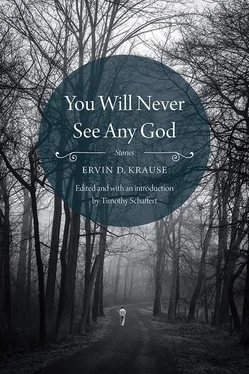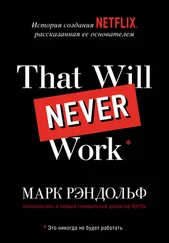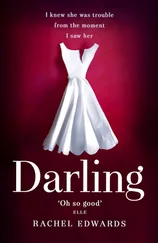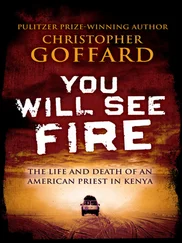“Go on, go back! Get!” The dog retreated, showing whites of eyes, one raised forepaw, its dignity wounded, it trying to save a remnant of that. It backed away. Leonard slid along the side of the barn, past the empty milking shed, and at the corner he waited, carefully, pulled in his breath, for he could hear the cooing, the pigeons always pursuing breeding, always ready for that. If he shot a dozen a day there would yet be pigeons. His brother wanted them out for they carried a host of diseases, he said. On that hint Leonard had shot many.
At the top of the barn, under the long eave where the hay trolley ran the pigeon perched, the blue head pivoted and bobbed and looked at him, and it too foolish or inexperienced to fly. The beautiful rifle arced perfectly, the little wedge of sight fastened on the blue breast with the elegant tracings of lavender, so bright, so stunning it almost hurt the eyes, like something imagined when one was young and worked with the brilliant range of colors in drawing books, and could never hope to achieve, the little needle of front sight bobbed at the lower edge, just a hint of brass touched the lavender V on the blue breast. The snap of sound, clear, washing all eardrums of fuzziness, and down it came, fluttering of bluish down, and it much faster, quick as lightning, thunked against the concrete, did not move.
He heard the frightened movement, waited, this one exit there above, the white-winged bird came out, was just on the point of its hurried and hysterical flight when he shot (his hand had changed old used bullet case for new one automatically, the greased slide, slip and motion, click nicely of steel), and thought he might have missed for an instant the way the bird did fly, but the puff of feathers told him different immediately. He waited, saw the pull of wings turn ineffectual, the flight fall lumpish, and it slammed somersaulting and rolling into the ground down there beyond the tank.
The dog whined in its anxiety to be in to them, but the gates were closed, the whining almost a whistling, it so anxious and insistent and begging.
Beyond the barn he saw the other pigeon, up on the silo in the middle of the feeding yard, a long shot for a.22 without a scope. (The rifle had had a scope when he came, but he took it off, the shots too easy with it; “what’s the sense?” he’d asked, “you lay the crosshairs on it and shoot, what sport in that?”; he’d taken the scope off and now only open sights and his eye), and out of the corner of his eye he saw his brother and the old hired man watching. He rested the stock firmly, very firmly in his shoulder, settled the rifle on the distant bird, so far it blurred and nothing but the whole bird to sight at, it so small it filled the entire sight. And shot.
Profound change. Profoundist. Down it dropped. Plummeted. Straight down. He could hear it hit.
“Good thing you didn’t make a hole in the silo roof,” his brother muttered, but obviously impressed.
He went in through the wooden gate, the whining dog going wild, the dog seized the first pigeon, although the dog was so fat and used to cooked scraps of steak and pork chops it never ate more than the head or a piece of pigeon breast, whichever the bullet made a hole into.
Leonard inspected the birds one by one, and this is what still made him shake a little, just a little, the inspection afterwards that he did not need to do, but always forced himself to do, remembering each time he did so his not wanting to shoot things when he was very young and being ordered to by his father when he was twelve or so, the first time, and how his father had put the rifle in his hand, another rifle then, assuredly, and had chosen a random bird, just to have him shoot something, a woodpecker, a bird he’d always liked, a woodpecker! and he had shot and hit it. The bird had come down, alarming him, horrifying him, yet in the fatherly approval that he desired delighting him too. He had not looked at the bird, could not, but ever after that he had, always examined that which he had brought to death, picked up the bundle of feathers, felt for the point of being hit, and ever amazed at the awful impact of the bullet. That was it, really, the real heart and matter of it, he thought, even as he fed the slender gray little bullets into the clip, nosed them in, the brass case seated firmly, and felt the bullets, so tiny, a quarter the size of his little finger, and from that what awful impact! What terrible change from something so small, hardly to be believed, and sometimes he had mused on whether one bullet, so little, so few grams there, whether one could hurt him , whether if he shot himself somewhere, arm, foot or wherever, if it would hurt. And knew it would, smiled at the thought, shot a hog for butchering once; and was astounded at how the 260-pound lumbering beast had thundered down as if a cosmic scythe had struck with whirlwind force to reap off its legs, it had scuttled down so suddenly. With awful impact the bullet found home. The turning bullet goes home (and why “home”? he asked, why that word?), the flesh is pounded to jelly, the bones that the victim thinks will surely last a thousand years are riddled and smashed (he had felt the crunched crispness like rattled potato chips of the bones of pheasants he had shot). But the bullet carries its own palliation, he thought grimly. It was said that the bullet deadens all pain in the locale of striking. Perhaps that was why the dying animals offered yet to flee from him instead of from that which was killing them — the bullet within.
He crossed the fence, driving the dog back for sure this time, went down along the pasture, picked up a stray cat at forty yards, scrubbing along the fence row, tacky and mean, and shot it dead. The cat went straight into the air, wrestling with something there, and down again, thrashed along for ten feet or so. When Leonard came up, it lay on its side, hissing and stroking with one forepaw, the other side paralyzed apparently, a smoking and open wound in its belly.
“What’s your history, cat?” he asked, touched it with the rifle muzzle to see if it would need a new bullet. It did not move at the gesture. “Only one life today?” he asked. And thought, god, god, profoundly altered, changed, eternally for it, eternally changed by that awful meeting of something brought crushing and unexpected through space to meet it here, unexpected and unpredestined except as the shooter destines, now in one casual determination. He watched, pulling at the hurting bandage on his neck. Hissing of remarkable anger, a rage, that changed to a terrible rattle in its throat and two great spasms, and freezing in that clenched posture. Forever, forever, Leonard thought; or as long as the bugs will let it alone — that’s how long this forever is.
There was a tightness around his forehead, a coolness in his chest; it always came upon him when he watched something die, this meditative and hurting helplessness at the irreversibility of it, even if he had brought it, but the bringing had been from a distance, the dying was up close. This nearness of the smashing, the impact, irreversible, irretrievable. He felt it more powerfully now. Especially now.
Smooth barrel, oiled stock, smooth, easy, he walked. The nervous cattle lifted their beautiful heads, pointed their tipped white ears and muzzles and looked at him. He remembered vaguely Homer and the lines of “cow-eyed”; was it cow-eyed dawn or cow-eyed Diana? Large, brown, beautiful eyes of these animals; immense eyelashes; Homer was right. The cattle sniffed, backed away, ran a little. He worked through them, crossed the creek. The cattle circled, some went ahead, some behind, and that was strange, he thought, for he expected them to go on to the other end of the pasture as they always had done, far away from the farm buildings, but today they did not, hung close, sniffing with that heavy challenging but frightened way and then running a little, circling, and coming back to study him.
Читать дальше











